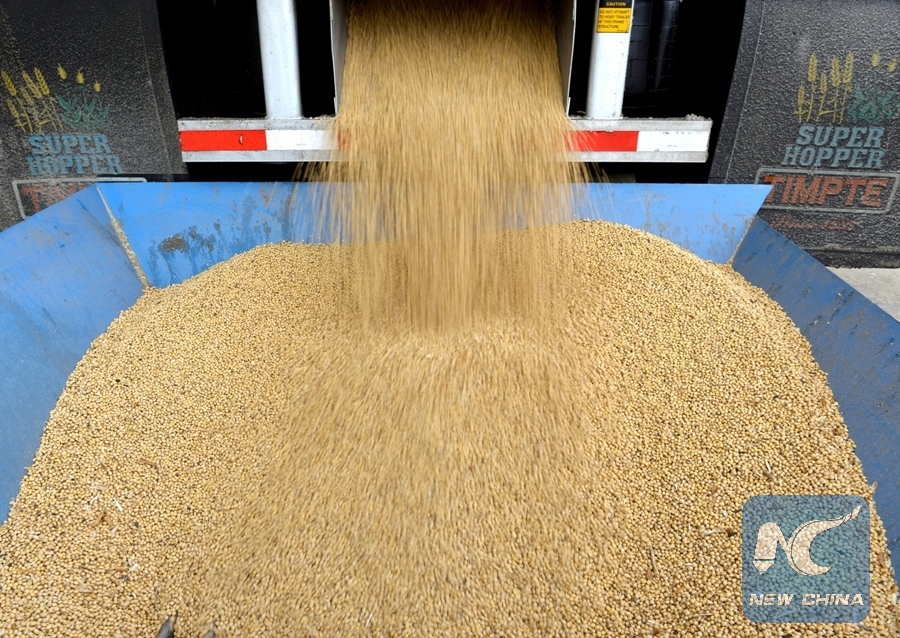
An incoming truckload of soybeans is unloaded at a farm in Fargo, North Dakota, U.S., Dec. 6, 2017. (Xinhua/REUTERS)
UNITED NATIONS, Oct. 9 (Xinhua) -- Global trade tensions may lead to a sharp slowdown in economic activity, UN Undersecretary-General for Economic and Social Affairs Liu Zhenmin has warned.
Global trade tensions continue to escalate, Liu Monday told the UN General Assembly's Second Committee, which is in charge of economic and financial affairs.
While the direct impact on trade flows remains limited, world trade growth has eased to about 4 percent in 2018 after expanding by more than 5 percent in 2017, said Liu.
A prolonged episode of uncertainty in the global trade arena has the potential to severely impact business and consumer confidence, asset prices, and investment behavior. This can lead to a sharp slowdown in economic activity, he warned.
"The spiral of protectionist and retaliatory measures poses setbacks to the multilateral trading system, as well as to multilateralism more broadly."
He also warned that financial vulnerabilities have been rising in many developing countries. "This is exposing them to exchange rate pressures, increased financial volatility or sudden capital withdrawal," he said.
Notably, countries with marked vulnerabilities such as fragile GDP growth, elevated political uncertainty, or large current account and fiscal deficits, have become more susceptible to financial volatility. They are at greater risk of contagion from external shocks, he said.
In a number of countries, the undercurrent of geopolitical tensions also has the potential to severely disrupt economic activity. Climate risks cloud the outlook in weather-sensitive regions, especially small island developing states, he said.
The ongoing rise in economic risks makes it all the more imperative that policy-makers build resilience in advance of any forthcoming economic shocks, said Liu. "We need to bolster the resilience of our economies and societies while improving the lives of the people who are most vulnerable."
The Donald Trump administration of the United States has adopted protectionist policies, slapping steep additional tariffs on imported products from trading partners regardless of international and domestic opposition.

